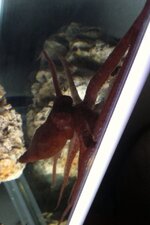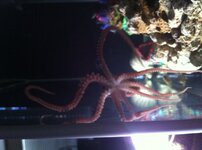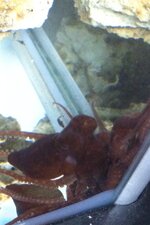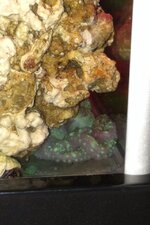- Joined
- Dec 20, 2013
- Messages
- 11
Hey guys I'm new to Tonmo.
I've been searching these forums for more than 3 or 4 months now and I finally got my octopus. I had my lfs order it from sea dwelling creatures. Because they do whole sale only. But I talked to their sales rep and he told me they had the atlantic pygmy octopus ( O Joubini ) and also a brown Pacific Ocean octopus but that was the one I didn't want and they told me they would get me the atlantic pygmy. But with the research I've been doing I'm now not sure which species I actually received. I took a few picture that I thought would be helpful any ID tips or hints would be greatly appreciated.
Also he ate the first day and acclimated really well.
I've been searching these forums for more than 3 or 4 months now and I finally got my octopus. I had my lfs order it from sea dwelling creatures. Because they do whole sale only. But I talked to their sales rep and he told me they had the atlantic pygmy octopus ( O Joubini ) and also a brown Pacific Ocean octopus but that was the one I didn't want and they told me they would get me the atlantic pygmy. But with the research I've been doing I'm now not sure which species I actually received. I took a few picture that I thought would be helpful any ID tips or hints would be greatly appreciated.
Also he ate the first day and acclimated really well.






